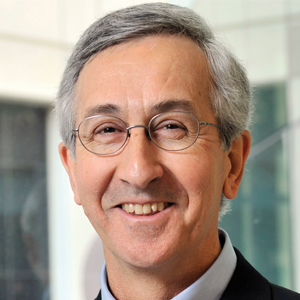Fred Goldberg (1942–2023)
Alfred L. “Fred” Goldberg, a pioneer, champion and major contributor to the field of intracellular protein degradation, died on April 18 at age 80 from complications of lymphoma.
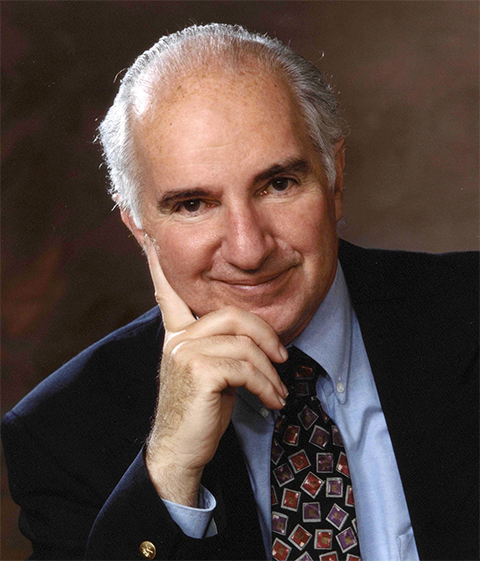
Fred spent his entire academic career at Harvard. As an undergraduate, he was introduced to research in modern molecular biology in the lab of James Watson. After a brief fellowship as a Churchill scholar at Cambridge University in the United Kingdom, he entered Harvard Medical School, but he abandoned his medical studies after two years to pursue what he found to be the more intellectually exciting world of full-time research. Upon completing his Ph.D. in 1968, Fred was appointed to the faculty at HMS where he spent the next 55 years, altering only his professorial titles with the successive changes in his department’s name from physiology, to cellular and molecular physiology, to cell biology.
Fred’s graduate work demonstrated that changes in muscle mass associated with many physiologic and pathologic conditions were mainly a consequence of altered rates of protein degradation rather than the expected changes in protein synthesis. These surprising results revealed the importance of protein degradation and showed it to be a highly regulated physiologic process. These discoveries formed the basis of the topic that absorbed Fred for the next 60 years and spawned a field whose biologic breath and medical relevance validated the prescience of his decision to study it.
Fred held an unwavering focus on protein degradation but applied an uncommonly broad approach to its study. Model systems in the Goldberg lab ranged from bacteria to mammals; experiments were conducted on both purified proteins and whole animals. With intellectual curiosity and encyclopedic knowledge, Fred toggled easily between the types of data generated by these diverse experiments, and he often integrated their results in insightful ways. As the number of processes in which protein degradation was shown to participate expanded, so did his interests, including (he noted with surprise and a touch of trepidation) a foray into immunology.
Fred would often begin a question at a meeting by alerting the speaker to the fact that “(----) years ago, (-------) in my lab showed that (------),” and then describe how a key finding in the just-presented talk had been made years earlier in the Goldberg lab. Although some participants reacted with wry smiles or eye-rolls, the statement was typically accurate and revealed how frequently his insights and observations were far ahead of their time.
For example, Fred’s early work on the selective degradation of structurally abnormal proteins in bacteria, as well as the protein aggregation that resulted from defects in this process, presaged contemporary discoveries about mechanisms of protein quality control and the consequences of protein misfolding, now appreciated to be linked to the pathogenesis of neurodegenerative and other human disorders. These findings also had practical implications for bacterial protein expression systems vital for the commercial production of medically important proteins and drugs.
Other early work demonstrated the then-surprising finding that intracellular protein degradation was regulated by hormones, growth factors, metabolites and nutrients. Researchers have since uncovered molecular details of the signaling pathways for such regulation and continue to investigate them.
Lacking mechanistic detail about the processes of protein degradation, Fred developed reductionist approaches using cell-free systems that mimicked important physiologic features, so he could identify and characterize many of the responsible proteins. One system, an extract from rabbit reticulocytes that catalyzed ATP-dependent proteolysis, formed a platform for the Nobel Prize-winning discovery and dissection of ubiquitin-conjugation and ubiquitin-dependent protein degradation. Fred’s own work with this system led to the discovery of the proteasome, and much of his work over the past 30 years focused on the molecular features and physiologic regulation of the proteasome in health and disease.
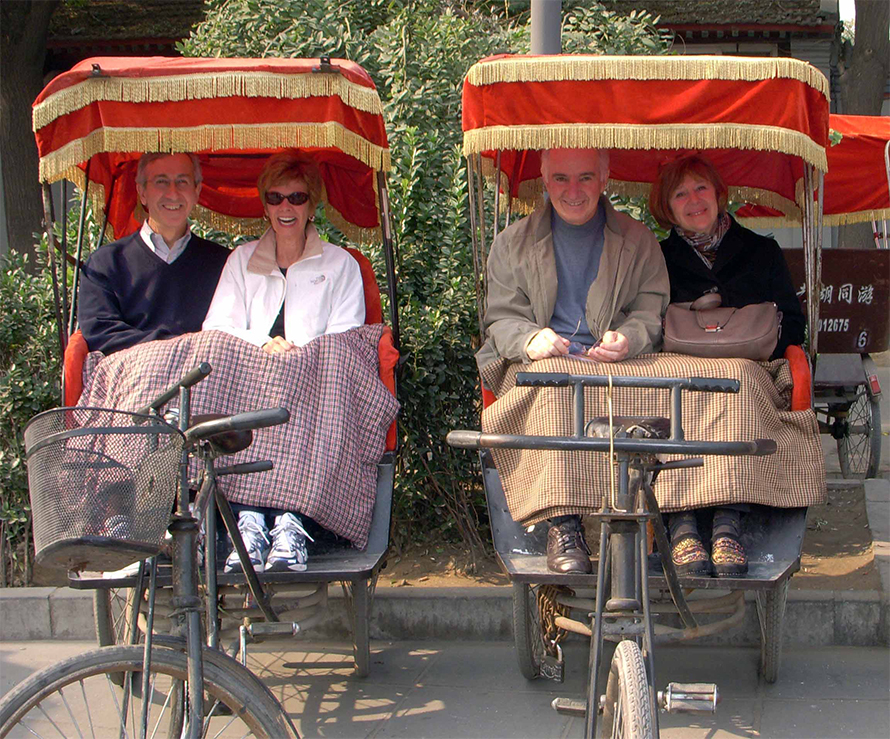
In the early 1990s, Fred founded a small biotech company with the goal of developing therapies for diseases that featured dysregulated protein degradation. This effort led to the discovery and development of proteasome inhibitors, such as MG132, that are commonly used as research tools. These tools were rapidly developed into drugs, such as bortezomib, which is now widely used to treat multiple myeloma and has greatly improved the survival of patients with this hematologic cancer.
In addition to his own prodigious output (he published nearly 500 peer-reviewed research papers and ranks among the most highly cited biologists), Fred tirelessly advocated for and promoted the field, ensuring that it was appreciated by the entire scientific community. This was particularly important when the field was small and fragmented and most investigators ignored or discounted the topic. His early reviews not only organized a disjointed set of observations but also mapped a path for how the field should proceed by highlighting critical unmet issues and goals. He organized meetings that brought colleagues together to promote collaborations and collective advances. Even after the importance of protein degradation was firmly established, his reviews and work continued to affect thinking in the field. Fred trained over 125 scientists, many of whom have gone on to successful academic careers and remained in close contact.
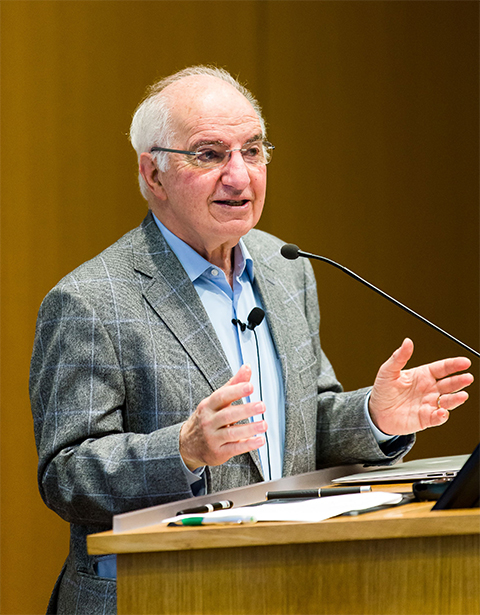
Fred received many honors and awards. He was a member of the American Academy of Arts and Sciences, the National Academy of Medicine and the National Academy of Sciences and a fellow of the American Physiological Society. He delivered many keynote and honorific lectures and was the winner of the 2012 Warren Alpert Foundation Prize, the 2015 Ernest Beutler Prize for Basic Science and the 2022 Passano Award for Medical Research.
Though he was dedicated to serious science, Fred had an active and ever-present sense of humor. As an undergraduate, he was a founder and president of The Harvard–Radcliffe Gargoyle, a short-lived humor magazine. The opening line of Vol. 1, No. 1 stated, “Not enough people laugh in Cambridge. … TheGargoyle is intended to alleviate this need.”
The transition from undergraduate to professor did not impede Fred’s ability to have fun. He ended the second of his massive and influential two-part Annual Review of Biochemistry review articles, “Intracellular Protein Degradation in Mammalian and Bacterial Cells I and II” (1974, 1976) with the citation: “441. Neve, R. A., Gaini, L. L. (1975), Crit. Rev. Biochem. 1: 78–94.” Somehow Fred convinced a very suspicious copy editor that the bogus citation was legitimate, and it was published as written. Fortunately, Fred did not adhere to this self-declared ban, and over the next 50 years, he continued to write important reviews that helped shape and guide the field.
Fred was an enthusiastic tennis player and a retired competitive tiddlywinks player but had little interest in professional sports. Lab outings to Fenway Park for a Red Sox game typically devolved into lab research conferences as early as the third inning; for Fred, no amount of on-field action was as interesting or exciting as science. Experienced postdocs would bring their latest results to the game, knowing there would be an opportunity for initial data analysis and discussion.
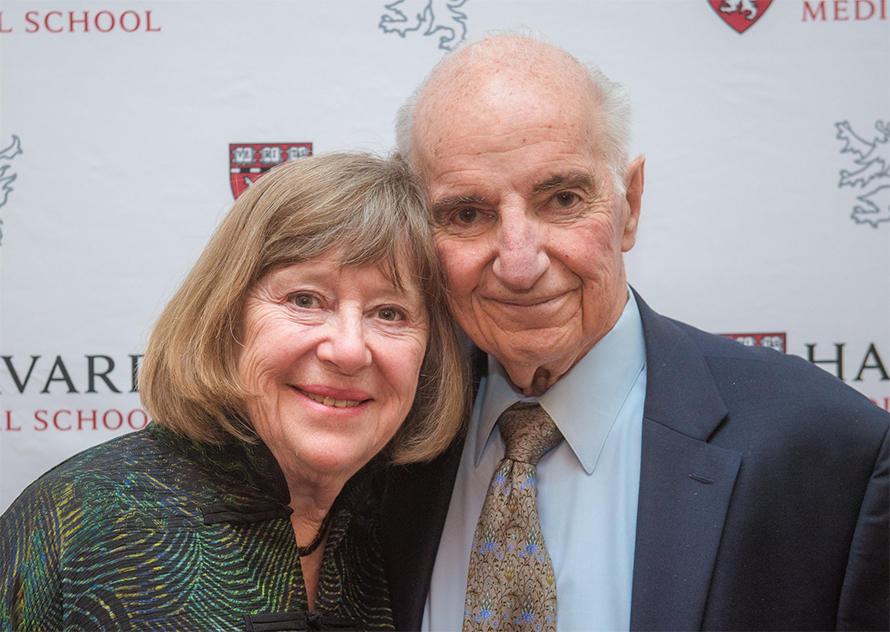
Fred faced his lymphoma with characteristic grace and good humor. He quipped that his disease and its treatments forced him to learn many of the things he had purposely avoided learning by dropping out of medical school. He admitted that his disease featured interesting biology and soon knew as much about its scientific basis as did his physicians. In fact, he delighted in describing how some of his more advanced treatments were based on research findings he had helped to discover.
During one of Fred’s hospitalizations, a physical therapist was assigned to strengthen his muscles, which she explained had been weakened by steroids and inactivity. After he mentioned that he had discovered the mechanisms of these phenomena, she was surprised to find a citation to her patient’s work in her physical therapy textbook.
Fred also used his illness as an opportunity to invent the new genre of what he called “lympho-poetry,” as he directed his long-standing predilection for writing occasion-specific doggerel toward documenting and making light of his condition.
Although his illness finally forced him to close his lab and transition to emeritus status in 2022, Fred continued to write and publish research papers. Thanks to Zoom, he attended departmental seminars, journal clubs and group meetings, and even delivered talks at research conferences.
As an associate editor of the Journal of Biological Chemistry, I helped recruit Fred to write a “Reflections” article for the popular journal series that recounts the personal histories of eminent biochemists. Although he agreed, and despite repeated assurances that submission was imminent, the article was never completed because he deemed it a low priority. Fred was more focused on the future than on the past, and he preferred to devote his time and energy to analyzing, discussing and reporting his latest research findings rather than reminiscing about old news.
Fred is survived by his wife, Joan Helpern Goldberg; a son, Aaron; a daughter, Julie; and many grateful trainees, colleagues, and friends around the world. He will be missed by all.
Enjoy reading ASBMB Today?
Become a member to receive the print edition monthly and the digital edition weekly.
Learn moreGet the latest from ASBMB Today
Enter your email address, and we’ll send you a weekly email with recent articles, interviews and more.
Latest in People
People highlights or most popular articles
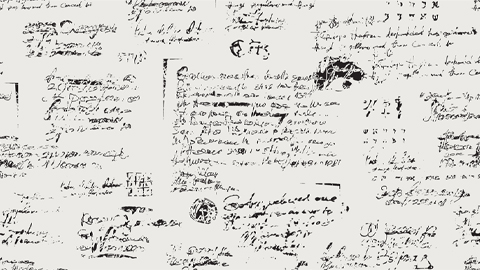
Notebook scribbles to synthesis pathways
The discipline Kendrick Smith learned as a musician helps him stay focused at the bench.
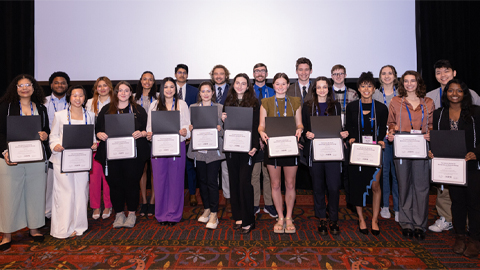
ASBMB inducts new honor society members
Chi Omega Lambda, which recognizes exceptional juniors and seniors pursuing degrees in the molecular life sciences, has 31 inductees in 2024.
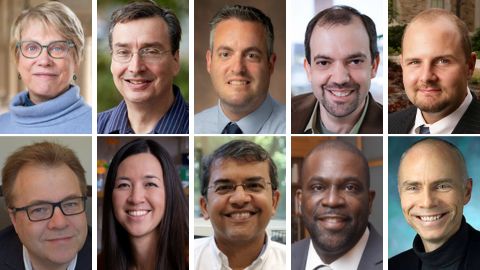
2024 voter guide
Learn about the candidates running for ASBMB Council, Nominating Committee, Publications Committee and treasurer.
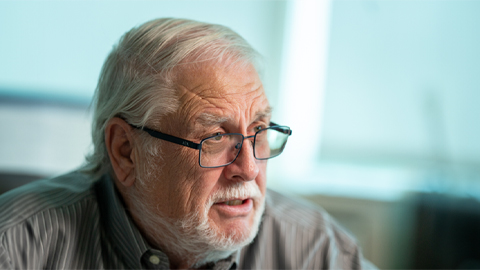
Charles O. Rock (1949 – 2023)
Colleagues and trainees remember a world expert in membrane lipid homeostasis.
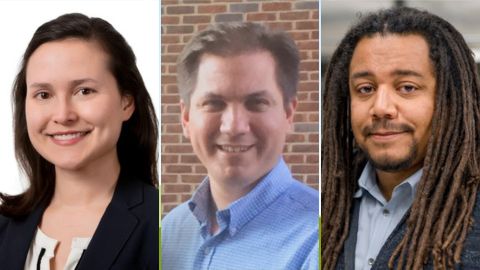
Honors for Clemons, Hatzios and Wiemer
Awards, honors, milestones and more. Find out what's happening in the lives of ASBMB members.
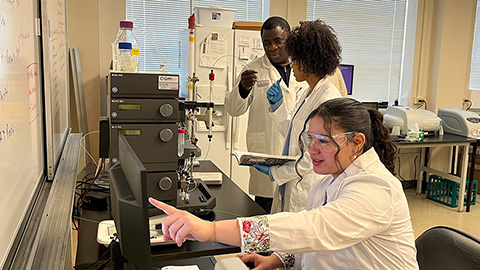
Touching the future from the bench
Scholar, scientist, teacher and mentor Odutayo Odunuga discusses the important roles of the institutional PI, his journey and his research.

